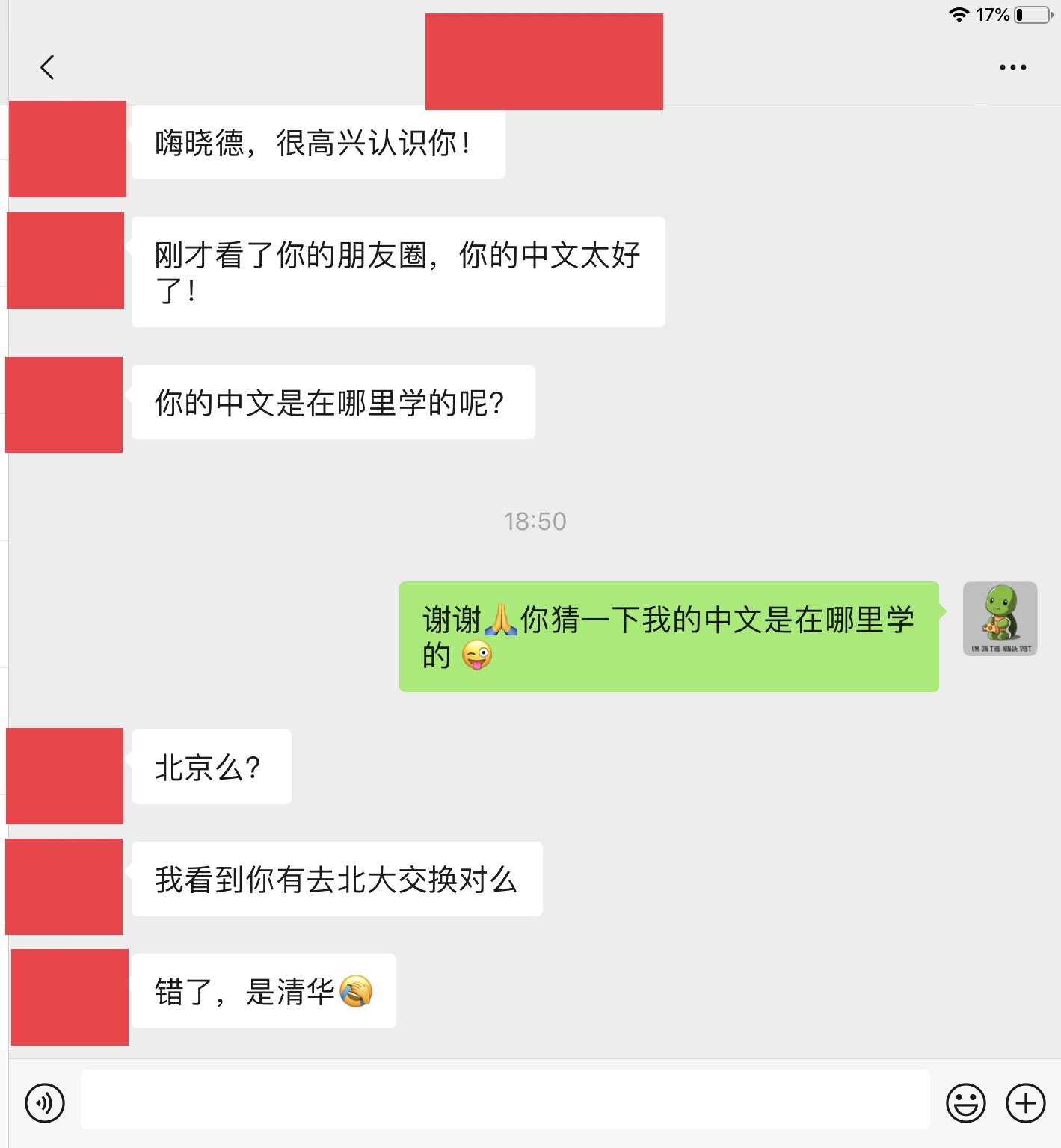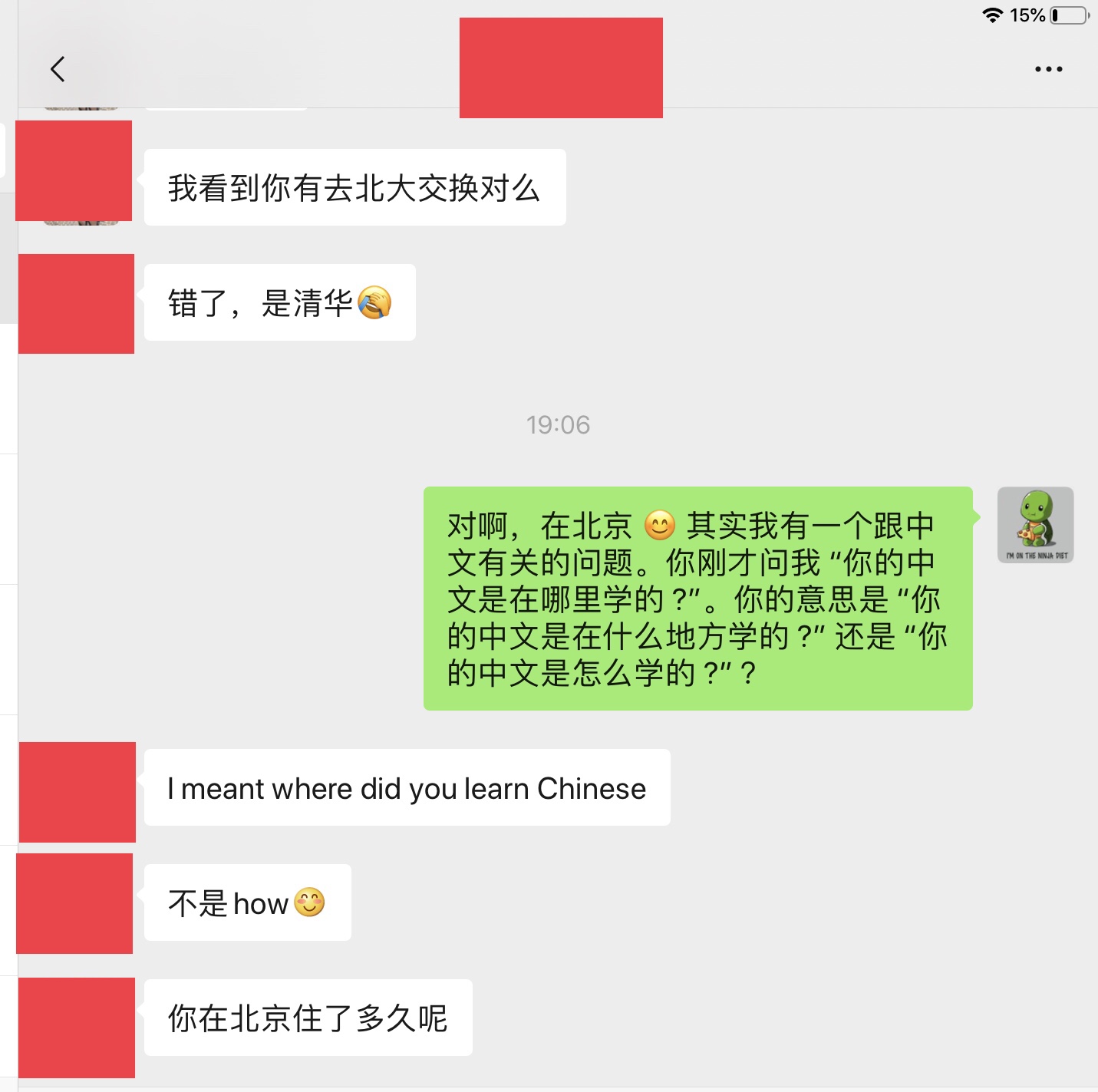Recently I left the following post on social media:
中国人:你的中文是在哪里学的?
我:在北京语言大学学的。
Just to clarify, I wrote both those sentences to express a regular conversation that I have with Chinese people. There is no more context. If it helps then let's say that the Chinese person heard me speak Chinese for the first time and I have pretty good Chinese.
A Chinese friend then commented:
他问的是 how 你回答的是 where.
Could it be that 在哪里 can not be used to mean 在什么地方 and can only be used to express 怎么?
If you saw the question 你的中文是在哪里学的? would you interpret that as 你的中文是在哪个地方学的? or as 你的中文是怎么学的? or both, depending on context?
My main issue is this: I created the scenario so there is no more context to be given. One person asks 你的中文是在哪里学的 and the response is 在北京学的。If the question can be interpreted both ways i.e. where/how then the commenter was not justified in saying that the question meant ''how''. She could have pointed out that that question doesn't always mean literally ''where'' but she couldn't say that it doesn't mean ''literal where''.
If the question 你的中文是在哪里学的 does mean ''literal where'' in some contexts then that answers my question. She was not justified in making that comment. The answer was not ''incorrect'' as it is correct in some contexts and we do not know the context.
The following images were added later after a conversation I had with a new Chinese friend where they actually asked me this exact question and I questioned them on it.
Also, I presented this to the Chinese person who originally stated that 你的中文是在哪里学的 is a ''how'' question and they agreed that there was actually nothing wrong with my original dialogue after all.
I conclude that 你的中文是在哪里学的 means ''where'' in general, but depending on the context it can mean ''how''.

